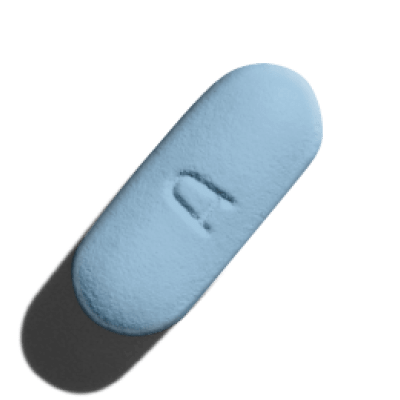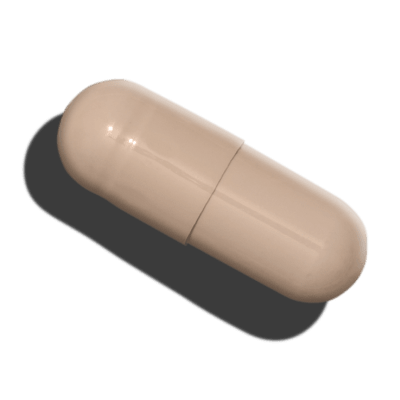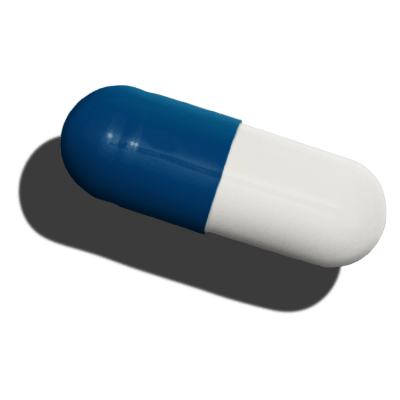Content
Seeking support for your mental health?
Antidepressants for Anxiety: Which One Is the Best?

Anxiety disorders are extremely common, with data from the National Institute of Mental Health indicating that an estimated 31.1 percent of American adults will experience an anxiety disorder at some point in life.
The symptoms of anxiety are often severe. If your anxiety is persistent, it may have a significant negative impact on your well-being and overall quality of life.
If you’ve been diagnosed with an anxiety disorder, your healthcare provider may suggest using medication for anxiety to reduce the severity of your symptoms.
Several types of medication are available for anxiety, including anti-anxiety drugs, beta-blockers and, for certain types of anxiety, antidepressants.
Although antidepressants are generally used to treat depression, several antidepressants have been approved by the U.S. Food and Drug Administration(FDA) to treat forms of anxiety such as generalized anxiety disorder (GAD) and panic disorder.
Below, we’ve talked about how antidepressants may help to treat anxiety, as well as the specific antidepressant drugs your healthcare provider may prescribe if you have an anxiety disorder.
We’ve also discussed how long it usually takes for anxiety to improve, the side effects you might experience while using antidepressants to treat anxiety and more.
Content
In addition to treating major depression, several antidepressants have been approved by the FDA to treat anxiety disorders. Others don’t have FDA approval for anxiety, but may be used “off-label” to treat certain anxiety symptoms.
Antidepressants may help to improve the way your brain uses chemicals that play a role in managing your moods and feelings of stress. They’re often used in combination with behavioral therapy to produce an improvement in anxiety symptoms.
Not all antidepressants are approved to treat anxiety. When an antidepressant is used to treat an anxiety disorder, it’s typically a selective serotonin reuptake inhibitor (SSRI) or a serotonin-norepinephrine reuptake inhibitor (SNRI).
Antidepressants can take several weeks to start working, meaning it’s important to keep taking them even if you don’t notice an improvement in your feelings, anxiety levels and general mood during the first few weeks of treatment.
Antidepressants can be extremely helpful, but they can also have drawbacks. You might experience side effects while taking antidepressants, or need to try several medications before finding one that’s a good fit for you.
If you’re prescribed an antidepressant to treat anxiety, don’t change your dosage or stop taking it without talking to your healthcare provider. Stopping an antidepressant abruptly can cause antidepressant discontinuation syndrome and withdrawal symptoms.
Despite their name, antidepressants aren’t just used to treat depression. In fact, research shows that antidepressants are helpful for a diverse range of mental health issues, including several of the most common anxiety disorders.
Two types of antidepressants are typically used to treat anxiety disorders — selective serotonin reuptake inhibitors (SSRIs) and serotonin-norepinephrine reuptake inhibitors (SNRIs).
SSRIs and SNRIs function by changing the levels of certain neurotransmitters in your brain and body.
Neurotransmitters are chemicals that are used in your body to facilitate communication between nerve cells.
Different neurotransmitters are responsible for a diverse range of bodily functions, including the regulation of your moods, thoughts and behaviors.
More specifically, SSRIs work by preventing serotonin reuptake, which increases the amount of serotonin that’s present in your brain.
Serotonin is sometimes referred to as a “happy hormone” or “happy chemical.” This is because the scientific community believes it may play a key role in helping manage your moods and feelings of well-being. Serotonin is also one of several neurotransmitters that may assist in reducing feelings of anxiety and depression.
Research has shown that low levels of serotonin are linked to depressive disorders, anxiety and suicidal behavior.
SNRIs, on the other hand, are believed to work by increasing the levels of serotonin and norepinephrine in your brain. Like serotonin, norepinephrine is a neurotransmitter that’s involved in regulating feelings, moods and behavior.
More specifically, norepinephrine is responsible for everything from helping you stay focused to assisting in the management of your sleep-wake cycle, your response to stress and your ability to store memories.
By increasing levels of these neurotransmitters, SSRI and SNRI antidepressants may improve your mood and provide relief from anxiety and depression symptoms.
Currently, the FDA has approved several antidepressants to treat anxiety disorders. Most of the antidepressants approved to treat anxiety disorders are SSRIs and SNRIs, although some older antidepressants are also approved for certain anxiety disorders.
Selective Serotonin Reuptake Inhibitors (SSRIs) for Anxiety
Selective serotonin reuptake inhibitors (SSRIs) approved by the FDA to treat anxiety disorders include:
Fluoxetine. Sold under the brand name Prozac®, fluoxetine is approved as a treatment for several anxiety disorders, such as panic disorder and obsessive-compulsive disorder (OCD).
Paroxetine. Sold under the brand name Paxil®, paroxetine is approved as a treatment for panic disorder, generalized anxiety disorder (GAD), obsessive-compulsive disorder (OCD), social anxiety disorder (SAD) and post-traumatic stress disorder (PTSD).
Escitalopram. Sold under the brand name Lexapro®, escitalopram is approved by the FDA as a treatment for generalized anxiety disorder (GAD) in adults.
Sertraline. Sold under the brand name Zoloft®, sertraline is approved as a treatment for panic disorder, social anxiety disorder (SAD), obsessive-compulsive disorder (OCD) and post-traumatic stress disorder (PTSD).
Fluvoxamine. Sold under the brand name Luvox® CR, fluvoxamine is approved by the FDA as a treatment for obsessive-compulsive disorder and social anxiety disorder.
Some other SSRIs, such as citalopram (sold as Celexa®), are not approved by the FDA to treat anxiety disorders. However, they may be prescribed off-label by your healthcare provider if your anxiety symptoms don’t improve with other medications.
talk to a psychiatry provider. it’s never been easier
What’s the Best SSRI for Anxiety?
Anxiety disorders can vary widely in severity. Some people with anxiety only develop symptoms that are mild and transient, while others have severe mental and physical symptoms that make living a normal life almost impossible.
In addition to varying in severity, anxiety disorders can vary in type. Some people are affected by generalized anxiety that occurs in almost any situation, while others may feel totally normal for most of the day, only to experience panic attacks in certain environments.
This is also true for many other mental health conditions, which can range from mild and fairly easy to manage to overwhelming and severe.
Because the symptoms of anxiety can vary so much, there’s no one-size-fits-all “best” SSRI for treating anxiety in everyone or “top anxiety medication” that works every time.
Instead of choosing a specific medication, it’s far better to talk to your healthcare provider about how you feel and the symptoms you’re experiencing.
They’ll be able to assess your needs and prescribe the best treatment for anxiety based on your symptoms and medical history.
Serotonin-Norepinephrine Reuptake Inhibitors (SNRIs) for Anxiety
Several serotonin-norepinephrine reuptake inhibitors (SNRIs) have been approved by the FDA as treatments for anxiety disorders. These include:
Duloxetine. Available as Cymbalta®, duloxetine is approved to treat generalized anxiety disorder (GAD).
Venlafaxine. Sold as Effexor®, venlafaxine is approved as a treatment for social anxiety (SAD).
In addition to SSRIs and SNRIs, some older or atypical antidepressants may be used to treat anxiety disorders. Some of these medications are approved by the FDA to treat anxiety, while others may be prescribed off-label.
Older antidepressants are rarely used as first-line treatments due to their elevated risk of side effects and interactions. However, they’re sometimes prescribed for severe depression and/or anxiety that doesn’t improve with newer medications.
Other antidepressants used to treat anxiety include:
Tricyclic antidepressants. Some tricyclic antidepressants, such as doxepin (sold as Sinequan® and under other brand names), are occasionally prescribed to treat certain anxiety disorders.
Monoamine oxidase inhibitors (MAOIs). As an older class of antidepressants, some MAOIs are still used to treat anxiety. For example, phenelzine (sold as Nardil®) may be prescribed off-label as a treatment for social anxiety disorder (SAD).
In addition to antidepressants, several other medications are also used to treat the symptoms of anxiety. Our guide to anti-anxiety medications goes into more detail about your options.
Although most newer antidepressants, such as SSRIs and SNRIs, are well tolerated, you may experience side effects while using any type of antidepressant medication to treat anxiety.
Common side effects of SSRIs and SNRIs include:
Agitation
Anxiety
Difficulty sleeping
Difficulty reaching orgasm
Dizziness
Headache
Nausea
Reduced sex drive
Some SSRIs and SNRIs are associated with sexual side effects, including erectile dysfunction in men. Sexual side effects can often be treated by changing medications, adjusting dosage or using erectile dysfunction medications such as Viagra® (sildenafil) or Cialis® (tadalafil).
In some cases, SSRIs and SNRIs can cause severe side effects, including serotonin syndrome and an increased risk of suicidal ideation and behavior. We’ve explained these in more detail in our full guide to SSRIs.
If you’re prescribed an older type of antidepressant, such as a tricyclic antidepressant or MAOI, you may experience more side effects.
These medications may also cause a range of drug and food interactions, as we’ve explained in our full guide to MAOIs.
If you experience any side effects after you start using an antidepressant, it’s best to talk to your healthcare provider.
If your side effects don’t improve on their own over time, your healthcare provider might suggest adjusting your dosage, using another antidepressant or switching to a completely different class of medications.
Yes. Some antidepressants, such as doxepin, are prescribed to treat sleeping issues such as insomnia. Other antidepressants used to treat sleep-related issues include trazodone, which may be prescribed off-label for this purpose.
If you have insomnia or other difficulties sleeping in addition to anxiety, make sure that you tell your healthcare provider before discussing the use of medication.
If you have an anxiety disorder, your mental health provider may prescribe an SSRI, SNRI or another type of antidepressant to help you control your symptoms.
Which antidepressant is best for anxiety? Because the symptoms of anxiety can vary greatly, there’s no “best” medication for this condition. You may need to try several antidepressants to find the medication that’s best suited to your needs and anxiety symptoms.
If you think you have an anxiety disorder and want to get help, you can talk to a mental health provider from home using our online psychiatry platform.
We also offer access to a range of other mental health services, including online therapy with a licensed mental healthcare provider.
22 Sources
- Any Anxiety Disorder. (n.d.). Retrieved from https://www.nimh.nih.gov/health/statistics/any-anxiety-disorder
- Anxiety Disorders. (2022, April). Retrieved from https://www.nimh.nih.gov/health/topics/anxiety-disorders
- Treatment options for generalized anxiety disorder. (2017, October 19). InformedHealth.org. Retrieved from https://www.ncbi.nlm.nih.gov/books/NBK279594/
- Warner, C.H., Bobo, W., Warner, C. & Rachal, J. (2006). Antidepressant Discontinuation Syndrome. American Family Physician. 74 (3), 449-456. Retrieved from https://www.aafp.org/pubs/afp/issues/2006/0801/p449.html
- Sheffler, Z.M., Patel, P. & Abdijadid, S. (2022, September 21). Antidepressants. StatPearls. Retrieved from https://www.ncbi.nlm.nih.gov/books/NBK538182/
- Chu, A. & Wadhwa, R. (2022, May 8). Selective Serotonin Reuptake Inhibitors. StatPearls. Retrieved from https://www.ncbi.nlm.nih.gov/books/NBK554406/
- Brain Hormones. (2022, January 24). Retrieved from https://www.endocrine.org/patient-engagement/endocrine-library/hormones-and-endocrine-function/brain-hormones
- Singh, D. & Saadabadi, A. (2022, October 10). Venlafaxine. StatPearls. Retrieved from https://www.ncbi.nlm.nih.gov/books/NBK535363/
- Adrenal Hormones. (2022, January 24). Retrieved from https://www.endocrine.org/patient-engagement/endocrine-library/hormones-and-endocrine-function/adrenal-hormones
- Sohel, A.J., Shutter, M.C. & Molla, M. (2022, July 4). Fluoxetine. StatPearls. Retrieved from https://www.ncbi.nlm.nih.gov/books/NBK459223/
- Shrestha, P., Fariba, K.A. & Abdijadid, S. (2022, July 19). Paroxetine. StatPearls. Retrieved from https://www.ncbi.nlm.nih.gov/books/NBK526022/
- Landy, K., Rosani, A. & Estevez, R. (2022, October 9). Escitalopram. StatPearls. Retrieved from https://www.ncbi.nlm.nih.gov/books/NBK557734/
- Singh, H.K. & Saadabadi, A. (2022, May 2). Sertraline. StatPearls. Retrieved from https://www.ncbi.nlm.nih.gov/books/NBK547689/
- LUVOX® CR (fluvoxamine maleate) Extended-Release Capsules. (2008). Retrieved from https://www.accessdata.fda.gov/drugsatfda_docs/label/2009/022033s002lbl.pdf
- Cymbalta (duloxetine hydrochloride) Delayed-Release Capsules for Oral Use. (2010, October). Retrieved from https://www.accessdata.fda.gov/drugsatfda_docs/label/2010/022516lbl.pdf
- Singh, D. & Saadabadi, A. (2022, October 10). Venlafaxine. StatPearls. Retrieved from https://www.ncbi.nlm.nih.gov/books/NBK535363/
- Doxepin (Depression, Anxiety). (2017, May 24). Retrieved from https://medlineplus.gov/druginfo/meds/a682390.html
- Sidhu, G. & Marwaha, R. (2022, March 12). Phenelzine. StatPearls. Retrieved from https://www.ncbi.nlm.nih.gov/books/NBK554508/
- Ferguson, J.M. (2001, February). SSRI Antidepressant Medications: Adverse Effects and Tolerability. The Primary Care Companion to the Journal of Clinical Psychiatry. 3 (1), 22-27. Retrieved from https://www.ncbi.nlm.nih.gov/pmc/articles/PMC181155/
- Doxepin (Insomnia). (2017, May 24). Retrieved from https://medlineplus.gov/druginfo/meds/a617017.html
- Trazodone. (2022, January 15). Retrieved from https://medlineplus.gov/druginfo/meds/a681038.html
- Sharbaf Shoar N, Fariba KA, Padhy RK. Citalopram. [Updated 2021 Dec 11]. In: StatPearls [Internet]. Treasure Island (FL): StatPearls Publishing; 2022 Jan-. Available from: https://www.ncbi.nlm.nih.gov/books/NBK482222/
Editorial Standards
Hims & Hers has strict sourcing guidelines to ensure our content is accurate and current. We rely on peer-reviewed studies, academic research institutions, and medical associations. We strive to use primary sources and refrain from using tertiary references. See a mistake? Let us know at blog@forhims.com!
This article is for informational purposes only and does not constitute medical advice. The information contained herein is not a substitute for and should never be relied upon for professional medical advice. Always talk to your doctor about the risks and benefits of any treatment. Learn more about our editorial standards here.
Vicky Davis, FNP
Dr. Vicky Davis is a board-certified Family Nurse Practitioner with over 20 years of experience in clinical practice, leadership and education.
Dr. Davis' expertise include direct patient care and many years working in clinical research to bring evidence-based care to patients and their families.
She is a Florida native who obtained her master’s degree from the University of Florida and completed her Doctor of Nursing Practice in 2020 from Chamberlain College of Nursing.
She is also an active member of the American Academy of Nurse Practitioners.




